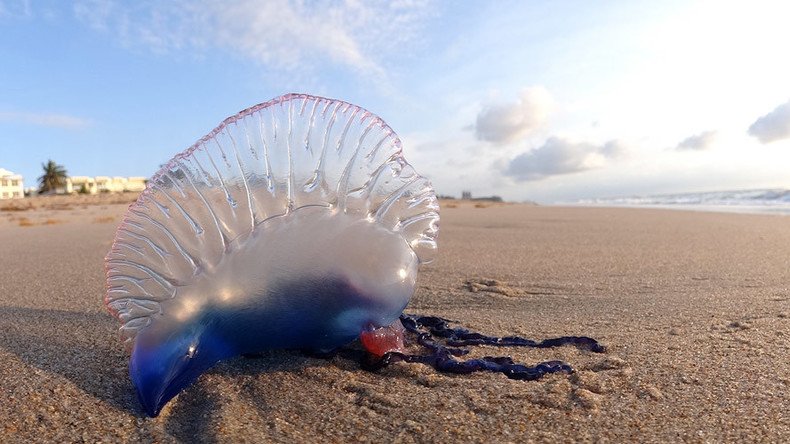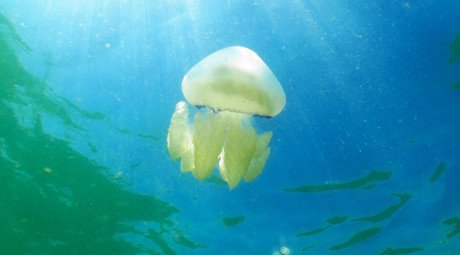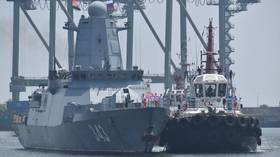Venomous Portuguese men-of-war invasion leads to swimming ban in Phuket, Thailand

The famous Thai region of Phuket, one of the world’s most popular tourist destinations, has banned swimming at three beaches after poisonous jellyfish-like creatures were washed ashore. Their stings can cause excruciating pain and in extreme cases can be fatal.
The Portuguese man-of-war, a strange-looking jellyfish-type creature, is a bizarre floating colony of lots of tiny marine organisms living together and behaving collectively as one animal. It remains dangerous for humans even when beached, and its poisonous sting can cause severe shock and heart failure.
Portuguese man-of-war spotted in #Phuket sea off three beaches https://t.co/DxUWND0K4gpic.twitter.com/ktJYI8Baj7
— ThaiPBS English News (@ThaipbsEngNews) 24 сентября 2016 г.
Kittiphas Tharapibal, head of Sirinath National Park, told the Bangkok Post that the national park staff had spotted men-of-war along the Naiyang, Naithon and Layan beaches in Phuket on Friday.
Tharapibal said the national park has issued an urgent warning for all tourists and locals not to play in the water or touch any creatures found on the sand.
There have already been reports of local jellyfish species causing death to humans, according to the Coconut Bangkot news outlet. Last year, a German tourist and a Thai national died after suffering jellyfish stings in the southern Thai region of Surat Thani.
In the meantime, swimmers in the Phi Phi islands of Krabi have also been warned about the men-of-war spotted in the area. Swimming was banned at Maya beach and visitors have been urged to stay vigilant at other beaches. Maya beach is a renowned sandy cove on Phi Phi Leh, one of the six islands forming the Phi Phi archipelago.
The entire water area surrounding the popular beach resorts has been affected by the men-of-war invasion, local media reported. The site is particularly famous due to ‘The Beach’, a 2000 adventure drama directed by Danny Boyle and starring Leonardo Di Caprio which was filmed on the island of Phi Phi.
Last August, thousands of miles away from Thailand, huge Portuguese men-of-war with tentacles as long as five London buses were spotted off the English coastline. Scientists have been unable to explain the sightings, but some biologists linked the phenomenon to global warming.
The first person ever to die as a result of a jellyfish sting in Europe was reported in the Mediterranean in 2010. Maria Furcas, 69, suffered an allergic reaction after being stung on the right leg while she was swimming with her sister at Porto Tramatzu near Cagliari, Sardinia.














